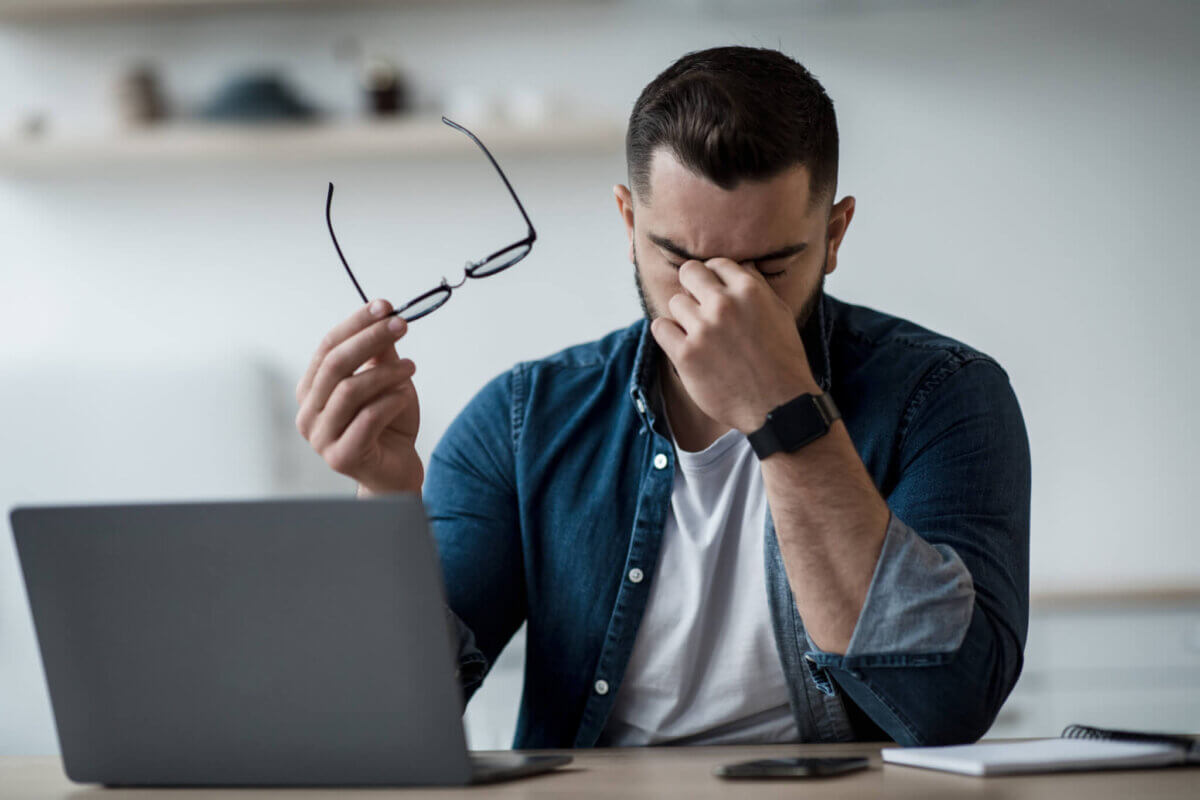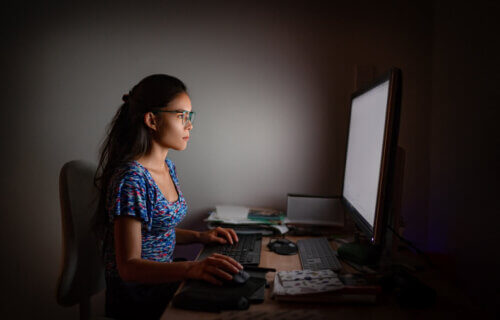At the start the coronavirus pandemic, countless people had to make the switch to virtual work, learning, and living — making blue light a hot topic. Many started using blue light glasses and tried to step away from technology whenever they could to prevent eye problems as they adjusted to their new, near exclusively virtual lifestyle.
Health spaces have since begun to talk about blue light a lot more now, and usually it isn’t in a positive way. While light from phones, computers, and iPads has been linked to faster aging, insomnia, and impaired glucose tolerance, the Sun also emits blue light and it isn’t linked to these things. In fact, the Sun is about 25 percent blue light and is still necessary for optimal health. It can keep us awake and boost mood, alertness, and even memory and cognition.
As technology has made its advancements throughout the years, things have changed. It wasn’t long ago that once the Sun went down, there were no bright TV’s or smart phones to keep things bright throughout the night. Now more than ever, however, our circadian rhythm can be thrown off more than it ever has.

As a result, sleep, vision, and even nutrition can suffer. The good news is that we can support our bodies through nutrition, even if we can’t always shut off the computer before bed on a busy night. Here’s how:
Eating enough lutein:
-
- Lutein is a naturally-occurring compound typically referred to as “the eye vitamin.” It has anti-inflammatory properties that help protect eye tissue from damage inflicted by blue light by acting like a filter. Although there isn’t conclusive evidence on if blue light actually damages the eye, making lutein a regular part of the diet may still help to limit your exposure. It’s part of a group called carotenoids, which is a class of compounds that carotene is part of. Carotene is what gives carrots it’s bright orange color! Some common food sources of lutein include kiwi, egg yolks, spinach, zucchini, grapes, and squash.
Avoiding large, carb-heavy meals before bed
-
- For people who use blue light at night, studies have shown that even without eating an excess of calories, the light can disrupt metabolic function and drive weight gain and diabetes. Blue light can also suppress melatonin, which promotes sleep. When this happens, it can throw off leptin as well, our hormone that signals fullness. If you have to use blue light before bed, it’s best to dim the brightness and try not to eat something huge shortly before bed.
Keep hydrating
-
- Blue light can be dehydrating, especially to the skin, so it’s extra important to keep drinking your water. The skin has several layers and blue light can interact greatly with the outermost layer called the epidermis. Over time, it can reduce aquaporin, which facilitates water transport between skin cells. This mechanism can drive skin aging with chronic use. Drinking any water is great, but adding some coconut water or water with electrolytes can take your hydration game to the next level.
This isn’t to say you can’t enjoy late-night Netflix or YouTube sessions, but being aware of how it might be impacting your body and what you can do to mitigate that by optimizing your nutrition could greatly enhance your day-to-day digital life.
You might also be interested in:
- A Dietitian’s Take: Top 3 Nutrient-Packed Seafood Choices
- What’s the difference between dietitians and nutritionists?
- Best Blue Light Glasses: Top 5 Pairs Most Recommended By Experts
- Blue light is bad for your eyes — but great for your mangos!

